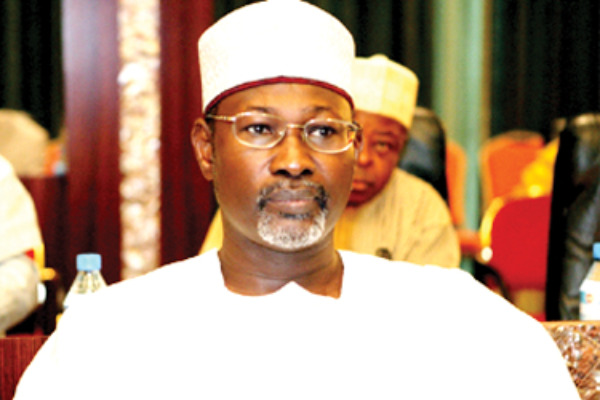The Chairman of the Independent National Electoral Commission (INEC), Professor Attahiru Jega, said that the commission struck out 28 parties from its list of registered parties because it had incontrovertible evidence that the parties had not complied with constitutional provisions to enable them continue existing.
Among these offences were their inability to maintain offices in Abuja and failure to periodically conduct congresses and elect party officials as provided by the constitution, Prof Jega told journalists at the commission’s headquarters in Abuja.
INEC had earlier deregistered 7 political parties for not fielding candidates in the 2011 elections, but Jega said the recent exercise looked beyond this reason in order to achieve greater sanity in the political system and that any political party which has a case against INEC arising from the previous deregistration exercise was spared in this last one pending the determination of the court case.
He added that the exercise should be looked at in the context of sanitising the electoral process and ensuring that all stakeholders in the political process play according to the rules.
“The constitution gives INEC the powers to register political parties. The constitution also defines in Section 221 to 228 what the requirements of registration are,” Jega said.
“Then the provisions that grant power to register political parties also gave the National Assembly the powers to enact laws to govern the electoral process. So the National Assembly enacted the Electoral Act as amended in 2010; and that is the provision of the electoral act that guided our action.
“Section 78(7) of that Electoral Act gave INEC the power to deregister political parties who are not in compliance with the constitutional provisions for the registration of the parties in the first place…As you are aware, we also have the power to monitor the activities of political parties and from the information available to us, we have incontrovertible evidence that the parties that we deregistered have not complied with these provisions of the constitution required for registration.
“In particular if you look at section 222 and 223, political parties are supposed to register with INEC and to have an office in Abuja and hold periodic elections; they are supposed to have executive that represent, in their composition, the federal character, in particular, two-thirds of the states of the federation. Also the electoral act in particular says that those who did not win any seats in any of the elections can be deregistered.”
Professor Jega also said that the deregistered parties were being economical with the truth by saying that they had no prior notice before they were deregistered.
“INEC wrote a letter to each of the political parties that was deregistered, indicating the grounds upon which they were deregistered. Many of them, about 17 out of the 28 received their letters before we went public to announce they were deregistered,” he said.
“For the remaining ones, some of them we did not get them precisely for the reasons they were deregistered. They are supposed to have offices in Abuja. But our officer who carried the letters went to a particular address of a political party, the signboard is there but there are new tenants in the building; it is a business centre.
“But because we have telephone numbers of the official, he was phoned and told him that we were at his office to give him a letter but we found out that there is a business centre there, and he said we should take back the letter he would come to the office and collect it. But the same parties are now saying that we did not inform them before they were deregistered.”
Jega also cleared the air regarding statements that the commission is seeking more powers including those to disqualify candidates nominated by parties. Rather, he said, the commission was seeking a repeal of a clause in Section 31 of the electoral act as amended, which says any candidate a political party submits to INEC cannot be rejected “for any reasons whatsoever”.
This was because the section is a contradiction to Section 87 of the same Electoral Act that demands that candidates must emerge through democratic primaries, he argued. “They can do direct or indirect primaries depending on the constitution of the party but it must be democratic. Hiding under the clause during the 2011 election, we had cases where we monitored the primaries of parties and where we had records of those who participated in the primaries but where political parties sent to us names of people who did not even participate in the primaries,”
Jega recalled that some political parties sent the names of those who came second, third or even fourth in the primaries as candidates, edging out the person who won democratically.
He also laughed off the allegations by Ghanaian opposition politicians that their defeat was as a result of a visit he paid to Ghana prior to last week’s presidential elections and his meeting with Ghanaian electoral officials. He said these allegations were spurious and aimed at tarnishing his image.
He said he arrived in Ghana only as an observer by 8pm on Thursday last week ahead of the election on Friday and never met with any electoral official.

